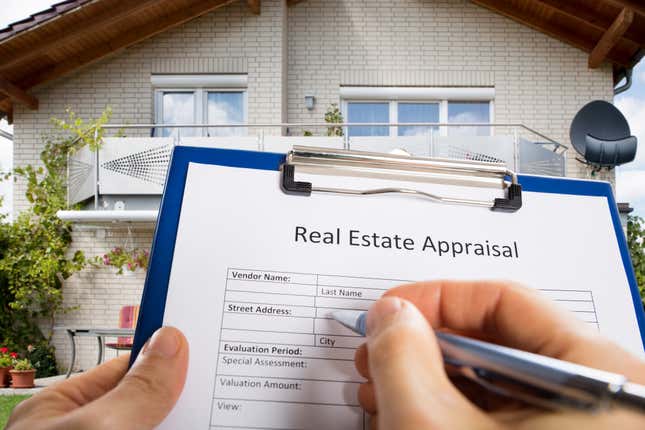
The Biden Administration announced a plan that seeks to reduce the impact of racial bias in the home appraisal industry, a problem that robs Black homeowners of millions of dollars in equity every year, furthering the problematic legacy of redlining and other institutional biases in the housing market decades after they were outlawed.
The Property Appraisal and Valuation Equity, or PAVE, action plan, calls for creating legislative proposals to create more accountability in the home appraisal industry, which is currently regulated by states but largely self-monitored. It calls for federal rules to limit the impact of potentially biased algorithms that when used by appraisers might artificially and negatively impact a home’s value. It spells out that the federal government should also outline and disseminate information to homeowners about steps they should take to get recourse if they believe they’ve received an appraisal that appears unusually low. It recommends the creation of a database that would aggregate information on appraisals from federally-backed mortgages, such as FHA or VA loans. And it calls for the government and the appraisal industry to take steps to make the industry, which is currently short-staffed and mostly-white, to become more inclusive.
The new policies come as homebuyers are already dealing with the challenges of a housing market thrown out of whack. Home prices are at record levels in many markets while inventories are at record lows. Interest rates on mortgages are now at their highest levels since 2019 driving up the cost to buy. Those things apply to the housing market broadly but they have a greater impact on Black buyers and sellers, who often start off with little to no money for down payments and closing costs and are rejected for mortgage applications as much as 84% more often than white applicants.
An analysis released earlier this month from Bloomberg News found that Wells Fargo, the country’s third-largest commercial bank, rejected more than half its Black mortgage applicants in 2020, while approving 72 percent of white applicants, 67 percent of Asian applicants, and 53 percent of Hispanic applicants.

